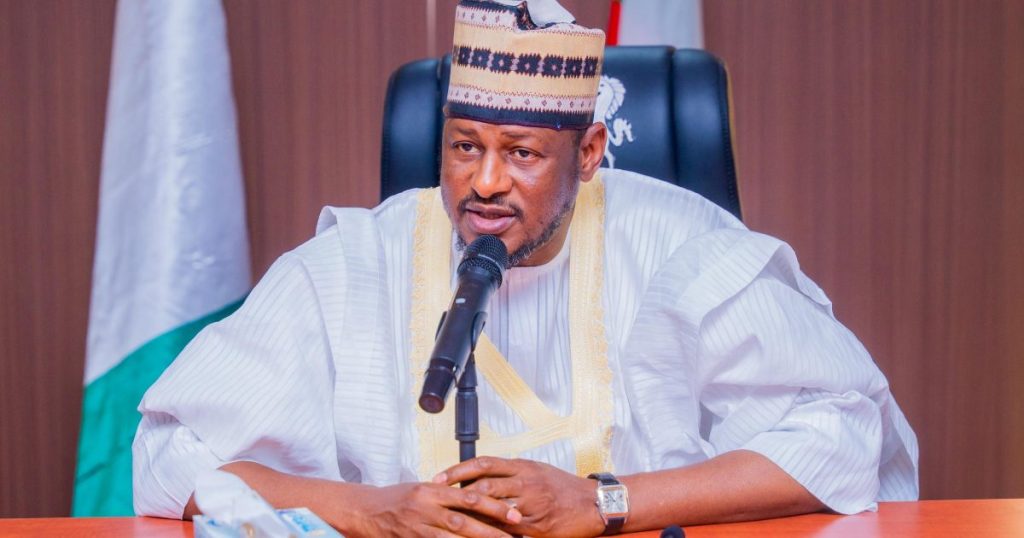The forthcoming National Consultative Committee on Statistics (NCCS) biannual meeting, slated for May 21-22, 2025, in Katsina State, promises to be a pivotal event for Nigeria’s statistical landscape. Hosted by Katsina State Governor, Dikko Radda, at the State Secretariat Complex, the meeting, themed “Promoting Development at Subnational Level Through Improved State GDP Compilation,” will convene State Statisticians General, representatives from Inland Revenue Services, the Nigerian Customs Service, and crucial ministries from across the nation. This gathering underscores the critical role of reliable and standardized statistical data in driving evidence-based governance and effective economic planning at both state and federal levels. The Governor’s emphasis on the importance of accurate data collection and analysis highlights the administration’s commitment to informed decision-making for sustainable development.
The NCCS, serving as Nigeria’s apex statistical coordinating body, plays a crucial role in harmonizing data collection methodologies across the country. The committee’s work encompasses the development of standardized procedures, policy recommendations, robust monitoring and evaluation frameworks, and importantly, the fostering of collaboration among various levels of government. This collaborative approach is essential for creating a unified and consistent statistical system that accurately reflects the nation’s economic and social realities. The meeting in Katsina State will provide a platform for in-depth discussions and knowledge sharing among key stakeholders in the Nigerian statistical ecosystem, contributing to a more cohesive and effective national statistical framework.
The choice of Katsina State as the venue for this significant national event underscores the state’s commitment to evidence-based governance. Governor Radda’s recognition of the vital role of reliable statistical data in driving sustainable development reflects a forward-thinking approach to policy formulation and implementation. By hosting this meeting, Katsina State is not only demonstrating its dedication to data-driven decision-making but also providing a platform for national-level discussions that will shape the future of statistical practices across Nigeria. The anticipated outcomes of the meeting are expected to significantly enhance the state’s planning capabilities and development initiatives.
The two-day meeting is expected to yield tangible outcomes in the form of strategic frameworks designed to bolster Nigeria’s statistical systems. These frameworks will provide a roadmap for improved data collection, analysis, and dissemination, ultimately contributing to more effective policy formulation at both state and federal levels. By addressing the challenges and opportunities within Nigeria’s statistical landscape, the NCCS aims to enhance the nation’s capacity for evidence-based planning and decision-making, furthering the pursuit of sustainable development goals. The meeting’s focus on improved state GDP compilation is particularly crucial for accurate economic assessment and resource allocation.
The significance of this meeting extends beyond the immediate gathering. The discussions and outcomes will have a lasting impact on the nation’s statistical capabilities, influencing policy development and resource allocation for years to come. By focusing on the critical role of data in driving progress, the NCCS is laying the groundwork for a more data-driven and informed approach to governance in Nigeria. This commitment to evidence-based decision-making is essential for achieving sustainable development goals and ensuring that policies are effectively targeted and impactful.
The anticipated outcomes of the NCCS meeting in Katsina State hold great promise for enhancing Nigeria’s statistical infrastructure. By bringing together key stakeholders and fostering collaboration across government levels, the meeting aims to strengthen the nation’s statistical capacity and promote data-driven decision-making. The development of strategic frameworks and improved state GDP compilation methodologies will contribute to a more accurate and comprehensive understanding of Nigeria’s economic landscape, ultimately leading to more effective policy formulation and sustainable development outcomes. This event signifies a crucial step towards a more robust and effective statistical system for Nigeria.


